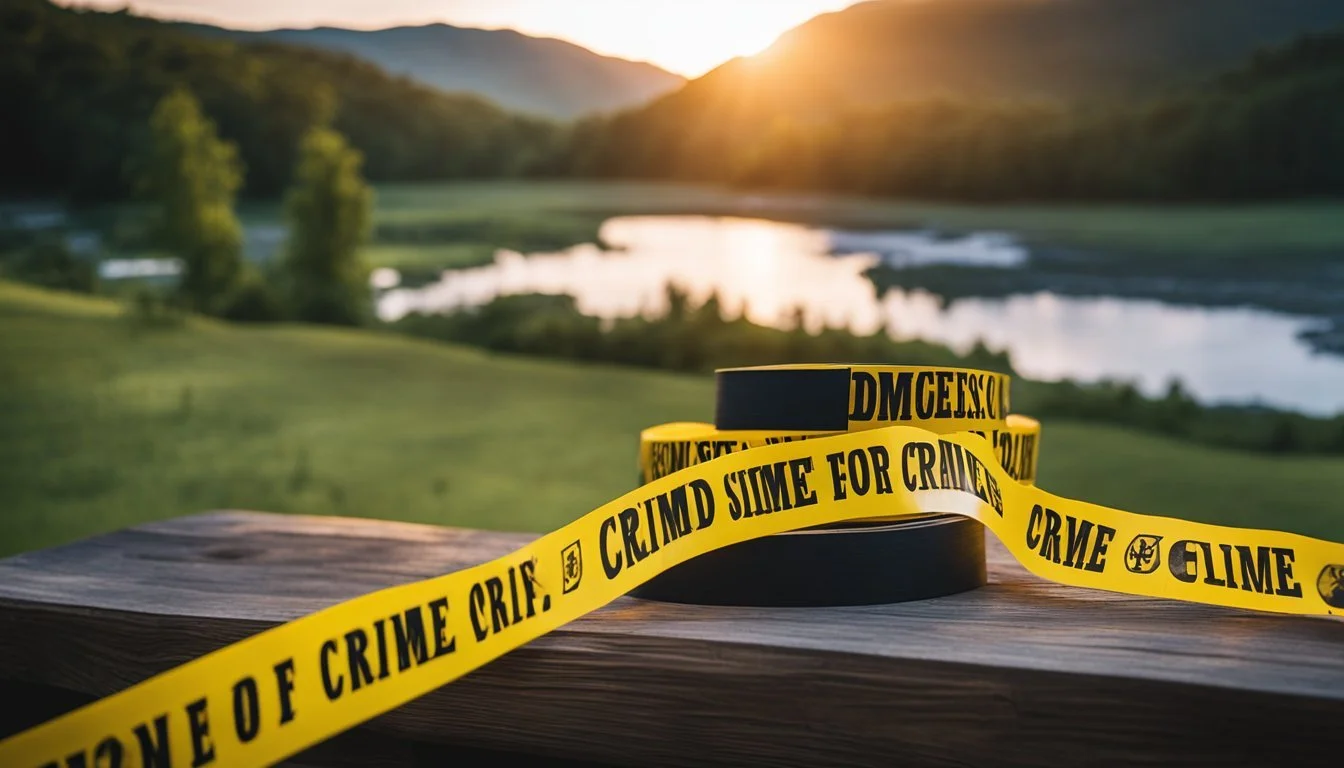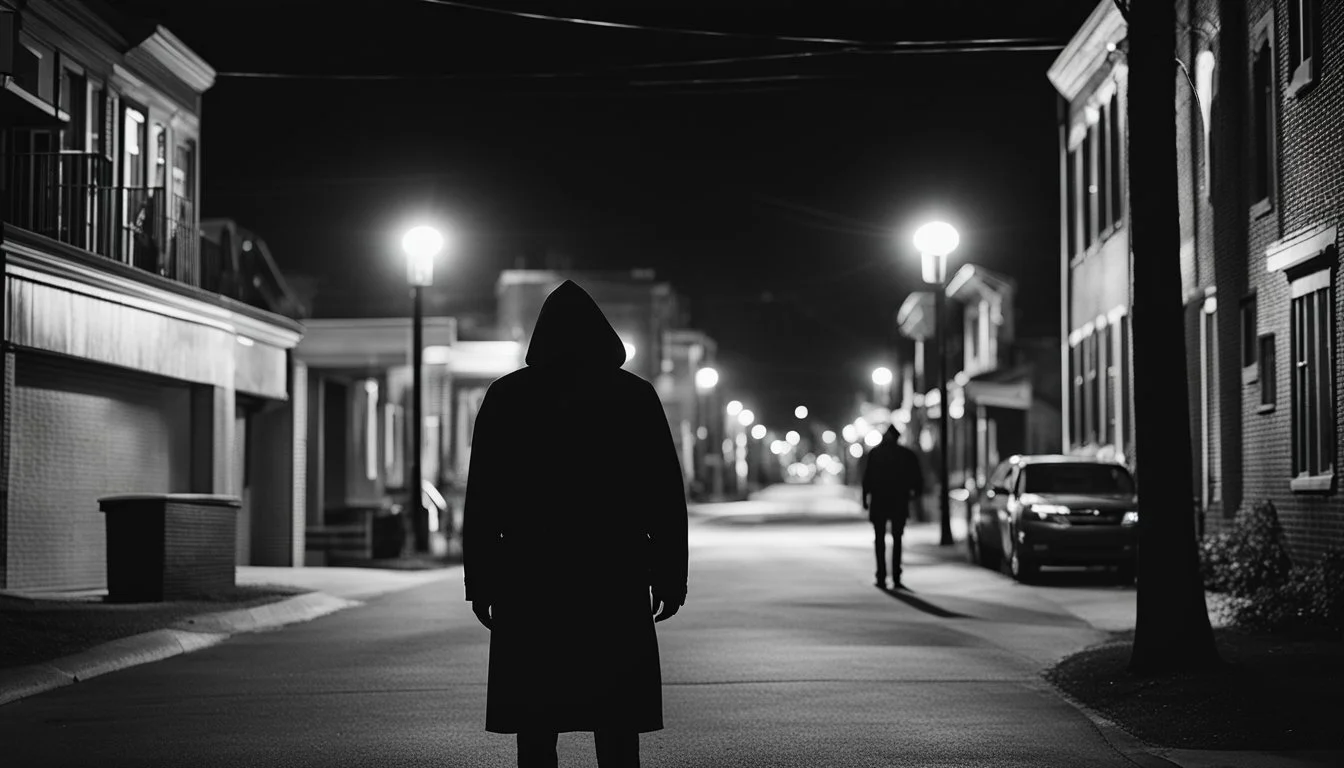9 True Crime Documentaries About Crimes in Tennessee
Must-Watch Gripping Tales
Tennessee's history of crime is a harrowing and complex tale that has fascinated true crime enthusiasts for years. From rural homicides to urban mysteries, the state has witnessed some of the most riveting and chilling criminal cases, many of which have been meticulously captured in various documentaries. These stories cover a wide range of incidents that offer a deep and unsettling look into the darker aspects of human nature.
Why should viewers invest their time in these true crime documentaries? They provide an unparalleled glimpse into the investigation processes, the social impact of these crimes, and the enduring quest for justice. With real-life narratives and in-depth analysis, these documentaries serve as not just entertainment, but also a sobering reflection on crime and its consequences in Tennessee.
1) Murder in Music City: The Paula Herring Story (2017)
In 1964, Paula Herring, a young college student, was found murdered in her Nashville home. This case shocked the local community and became one of Tennessee's most infamous crimes.
Michael Bishop, in his book "A Murder in Music City," explores the wrongful conviction of John Randolph Clarke. Clarke was framed and served nine years of a 30-year sentence before his untimely death from a heart attack.
Bishop's investigation revealed deep-seated corruption in the Nashville police force during the 1960s. His work exonerated Clarke, shedding light on the mishandling of Paula Herring's case by local authorities.
The documentary "Murder in Music City: The Paula Herring Story" delves into this controversial case. It focuses on Bishop's findings and the broader issues of justice and corruption in Nashville during that era.
For more information on this documentary, you can visit IMDb.
2) The Disappearance of Holly Bobo
Holly Lynn Bobo, a 20-year-old nursing student, disappeared on April 13, 2011. She was last seen by her brother, Clint, walking into the woods near their home in Darden, Tennessee, with a man dressed in camouflage.
The case captured national attention due to the mysterious circumstances and the desperate search conducted by law enforcement and volunteers.
For years, the investigation faced numerous challenges and setbacks, including false leads and uncooperative witnesses.
In 2014, three years after her disappearance, Holly's remains were discovered by a hunter in a wooded area of Decatur County, Tennessee. This grim discovery led to several arrests and charges against multiple individuals.
The documentary "Law & Crime Mystery: Who Killed Holly Bobo?" (2015) delves into the intricate details of her case, exploring the investigation, the suspects, and the impact on her family and community.
This case remains one of Tennessee's most tragic and captivating true crime stories.
3) Tennessee's Innocence Project: Fighting Wrongful Convictions
The Tennessee Innocence Project is committed to addressing and rectifying cases of wrongful convictions within the state.
Founded with the support and guidance of the national Innocence Project, this non-profit organization focuses on investigating and litigating claims of actual innocence.
It works tirelessly to exonerate wrongfully convicted individuals, a process that often takes years and considerable effort.
The organization also emphasizes educating law students and attorneys. They provide training on the complexities involved in litigating innocence cases and the essential steps needed to prevent future wrongful convictions.
The project’s legal team, comprising dedicated attorneys, investigators, and volunteers, reviews cases and provides pro bono legal assistance.
In addition to litigation, the Tennessee Innocence Project advocates for criminal justice reforms. They aim to implement policies that help prevent wrongful convictions, thereby enhancing the integrity of the justice system.
Their efforts extend beyond individual cases, seeking systemic changes that address the root causes of wrongful convictions.
By focusing on these areas, the Tennessee Innocence Project contributes to both individual exonerations and broader legal reforms. Their ongoing efforts highlight the urgent need for vigilance and reform in the criminal justice system.
4) The Great Smoky Mountains Murders
The Great Smoky Mountains, a well-known national park in Tennessee, became the site of a chilling crime. Tourists found a black Jeep at the bottom of an embankment. Inside, they discovered Kelly Lovera, dead from severe head trauma. Authorities initially suspected a gruesome accident. However, a deeper investigation revealed a murder.
The victim’s wife, Shayne Lovera, was convicted of the crime. She was found guilty of killing her husband and disposing of his body in the park. Her motive was unclear, but the evidence pointed to a cold-blooded murder.
For more information on this case and the documentary covering it, visit Crime News.
5) The Case of the Missing Mitkims
In 1994, the Mitkim family mysteriously disappeared from their home in a quiet Tennessee town. The parents, along with their two children, were last seen leaving a local grocery store.
Despite extensive searches and media coverage, no trace of the family was ever found.
The documentary explores various theories about their disappearance. Some suspect foul play, while others propose that the family might have left voluntarily to start a new life.
Interviews with law enforcement, friends, and family members provide insights into the ongoing mystery. The film presents previously unreleased evidence, hoping to shed light on what happened to the Mitkims.
For more information on this gripping documentary, visit IMDB (2022).
6) The Drifter Killings of Tennessee
The Drifter Killings refers to a series of murders committed by a traveling transient across Tennessee in the mid-1990s. These crimes caused widespread fear and panic among rural communities. The killer targeted mainly older residents living in isolated areas, making it difficult for law enforcement to track their movements.
One of the most notorious incidents involved the murder of a couple in their farmhouse near the small town of Pigeon Forge. The killer used stolen vehicles to move from place to place, which complicated investigations. Each crime scene exhibited signs of brutal and frenzied violence, leaving a lasting impact on the community.
The perpetrator, later identified as a repeat offender with a history of violence, was eventually captured after a nationwide manhunt. His arrest brought an end to a terrifying chapter in Tennessee's history. A detailed documentary on these events provides insights into the investigation and community response.
For those interested in learning more, the documentary “The Drifter Killings” (2018) explores the case in depth.
7) The Knoxville Stalker: A Tale of Fear
The story of the Knoxville Stalker unfolded in the early 1980s, gripping the city with terror. This documentary sheds light on the chilling events surrounding an elusive predator who haunted the streets of Knoxville.
Residents lived in constant fear as the stalker preyed upon women, targeting them in their own homes. His ability to evade capture puzzled law enforcement for years, making the community increasingly anxious.
Victims recounted harrowing experiences, often describing a shadowy figure who lurked just beyond their reach. The documentary captures their fears and the relentless pursuit to bring the stalker to justice.
As the investigation unfolded, the complexities of the case became apparent. Patterns emerged, but the elusive nature of the stalker made him a formidable adversary. The Knoxville police faced pressure from the public to solve the case.
Through interviews with detectives and victims, the documentary paints a vivid picture of the era. Archival footage and recreated scenes add depth, bringing the story to life and emphasizing the persistent threat the stalker represented.
The film concludes with the eventual capture and trial of the Knoxville Stalker, providing closure to the victims and the city. This gripping portrayal of a real-life nightmare serves as a stark reminder of the dangers that lurk in the shadows. More Information.
8) The Chattanooga Assassin: The Untold Story
The Chattanooga Assassin: The Untold Story (2021) explores one of Tennessee's most baffling crime incidents.
This documentary delves into the chilling case of a serial killer whose activities shocked the city of Chattanooga. The film meticulously examines the investigation, revealing the steps taken by law enforcement to profile and eventually capture the elusive criminal.
Interviews with key figures, including detectives and family members of the victims, offer a comprehensive look at the human impact of these heinous acts. Archival footage and crime scene photos add a visceral layer to the narrative.
The documentary also addresses the aftermath, highlighting the enduring scars left on the community. Legal experts dissect the trial, providing insights into the challenges faced during the prosecution.
For more information about this film, visit the IMDb page.
9) The Shocking Murders of the Campbell Family
The Campbell Family murders are among the most chilling crimes in Tennessee's history. This documentary delves into the tragic events that unfolded in a small Tennessee town in 1998. The family was brutally slain in their home, leaving the community in shock and demanding answers.
The investigation into the murders was filled with numerous twists and turns. The local police faced immense pressure to find the perpetrator, which led to a series of controversial decisions. Forensic evidence played a vital role in uncovering the truth behind the heinous crime.
Suspects initially included friends and acquaintances of the Campbell family, but the evidence eventually pointed to a more unexpected individual. The documentary meticulously traces the steps investigators took to solve the case, offering viewers a detailed look into the investigative process.
The legal battle that ensued was intense, with courtroom dramas and emotional testimonies from those who knew the family. The documentary captures these moments, providing insight into both the personal and legal ramifications of such a tragic event.
For more information, visit the documentary's IMDb page.
Historical Context of Crime in Tennessee
Crime in Tennessee has evolved over the decades, influenced by various social, economic, and infrastructural changes. From early serial killers to modern-day criminals, the state has witnessed several significant crime waves.
Overview of Crime Trends
In the early 20th century, Tennessee experienced a rise in organized crime related to bootlegging and gambling. During Prohibition, many individuals engaged in illegal alcohol distribution, leading to violent confrontations and a notable increase in crime rates.
Post-World War II era saw the transition to more sophisticated crime operations. Economic hardship and rapid urbanization contributed to the prevalence of property crimes, robberies, and assaults.
By the 1970s, the state grappled with a surge in violent crimes. The development of new infrastructure in cities like Nashville inadvertently made it easier for violent criminals to operate there, resulting in a significant crime wave.
Notable Crime Waves
One of the most infamous periods was the 1970s, marked by a rise in serial killings in Nashville. The construction of highways and urban development created an environment where transient criminals flourished.
The late 1990s and early 2000s saw another spike in violent crimes, including gang-related activities and high-profile murders. Large-scale drug trafficking operations also became more prominent during this period.
In recent years, the focus has shifted to tackling opioid-related crimes. Tennessee, like many states, has faced a significant opioid crisis, leading to an increase in drug-related arrests and prosecutions.
Each of these crime waves left a lasting impact on the state's legal and law enforcement strategies, influencing public policy and community safety measures.
Societal Impact of True Crime Stories
True crime stories, widely consumed through documentaries, significantly affect how communities perceive crime and influence legal processes.
Community Reactions
True crime stories often lead to heightened public interest in criminal cases. They can prompt discussions about justice, creating a more informed community. Documentaries such as Making a Murderer highlight systemic flaws and can mobilize people to demand changes in the legal system.
Additionally, these stories can sometimes incite anxiety or fear. Viewers might perceive crime rates to be higher than they actually are, leading to increased concern for personal safety.
Finally, some individuals become "citizen sleuths," actively engaging in crime-solving or advocacy efforts, sometimes even making discoveries that impact ongoing investigations.
Legal Repercussions
The influence of true crime stories extends into the legal realm. High-profile cases covered in documentaries can lead to renewed interest in old cases or even new evidence coming to light. Attorneys and legal professionals often find themselves responding to public opinion shaped by media portrayals.
Moreover, wrongful convictions have been challenged and overturned due to the exposure provided by these documentaries. For instance, the case of Adnan Syed gained wide attention through the Serial podcast, eventually leading to significant legal reconsiderations.
Lastly, there's a growing scrutiny of prosecutorial practices, prompted by the often-detailed examination of judicial errors or misconduct in true crime media.
Psychological Factors in Notorious Crimes
Understanding the psychological factors behind crimes can provide insights into the minds of criminals and the deep scars left on victims. This section explores these elements through two specific lenses.
Profile of Criminal Minds
The psychology of criminal behavior often reveals patterns and motives driving individuals to commit notorious crimes. Many criminals exhibit symptoms of personality disorders such as antisocial personality disorder or narcissistic personality disorder. These conditions can manifest in traits like lack of empathy, manipulativeness, and a penchant for risk-taking.
Several factors contribute to a criminal's mindset, including childhood trauma, environment, and genetic predispositions. For example, exposure to violence at a young age, persistent neglect, or abusive family dynamics can desensitize individuals to the suffering of others. This desensitization can cultivate a propensity for violence and criminal activity.
Criminal profiling also involves assessing the modus operandi and signature of criminals. This includes studying the patterns and methods used to carry out the crime, which often provide a psychological snapshot of criminals’ rituals and motivations. Such profiles are essential in aiding law enforcement in predicting and preventing future crimes.
Impact on Victims
The psychological effects on victims of notorious crimes are profound and often long-lasting. Victims of violent crimes frequently develop conditions such as post-traumatic stress disorder (PTSD), anxiety, and depression. These mental health issues can be compounded by feelings of guilt, shame, and powerlessness.
Support systems play a crucial role in the recovery process. Therapy, support groups, and sometimes medication are essential for helping victims cope with trauma. Early intervention can significantly affect the likelihood of long-term psychological damage and support the rebuilding of a victim's life.
Another critical aspect is secondary victimization, where victims might face social stigma, blame, or insensitivity from law enforcement and society. This additional trauma can hinder recovery and exacerbate feelings of isolation and helplessness. It's crucial that communities and professionals provide empathetic support tailored to the individual needs of victims.












